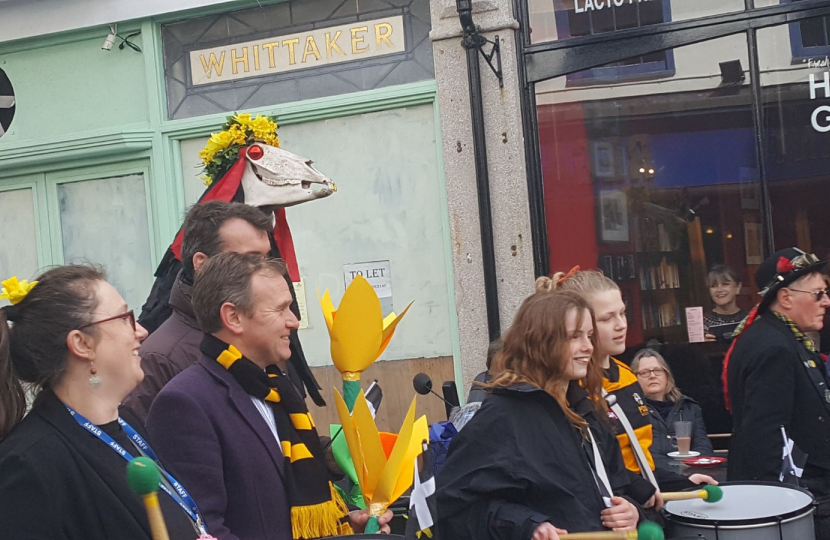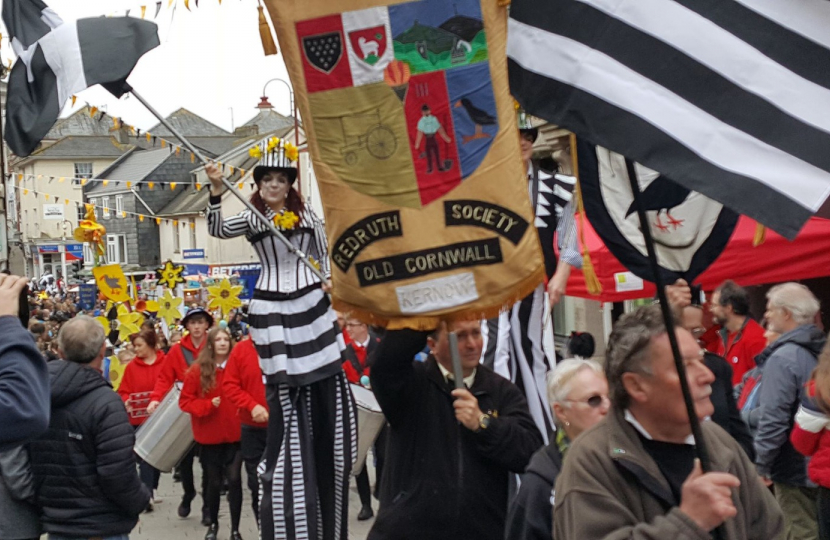Last weekend, there were celebrations in towns across Cornwall to mark St Piran’s Day. Over the past few years, we have seen a growing interest in Cornwall’s history and culture. Camborne, Redruth, and Hayle are at the very heart of this revival, and it’s great to see these great industrial towns leading the way in promoting our rich and wonderful history. From the regeneration of Heartlands at Pool, the new Kresen Kernow Archive, and the work by Redruth Revival CIC in regenerating Redruth, we are seeing a lot of regeneration done in a way that not only respects but celebrates our proud industrial past.
Cornwall has a unique constitutional place within our United Kingdom which is recognised. Many of us consider ourselves as Cornish before English and there has been growing interest in the Cornish language in recent years. In the last 12 months, there has been talk of a new devolution deal for Cornwall. This was confirmed in November by council leader Linda Taylor where she announced that we have secured an ambitious ‘level 3’ deal.
The nature and origins of Cornish particularism are often misunderstood and sometimes even mocked by up-country folk who don't know what they are talking about. Cornwall is unusual. It has a highly unionist tendency sealed through the Crown down the centuries; it is resilient and self-reliant; it can occasionally be somewhat aloof but only ever hostile to other parts of our country when deliberately provoked. It is eternally proud of its distinctiveness. Historically, during Anglo-Saxon times, Cornwall was named "West Wales" and our links with Wales go back a long way.
As we were recently reminded after the passing of the Queen, it is a constitutional rule that the eldest son of the monarch automatically assumes the title of Duke of Cornwall and that has been the case down the ages. The Duchy of Cornwall performs some of the functions that elsewhere fall to Crown Estates. Until the 1700s there was a Cornish Stannary Parliament that had the power to veto certain English tax laws in Cornwall as part of a constitutional settlement to accommodate tin mining interests. An attempt to disregard that settlement led to the Cornish Rebellion of 1497. Cornwall was the only Royalist enclave in the Southwest during the civil war and had the Royalists won would probably have been granted an administrative status similar to Wales.
Nonetheless, Cornwall is very committed to the UK union, but we are very proud of our own distinctiveness, and as we celebrate this distinctiveness, we should continue to find better ways of recognising that within our Constitution.



